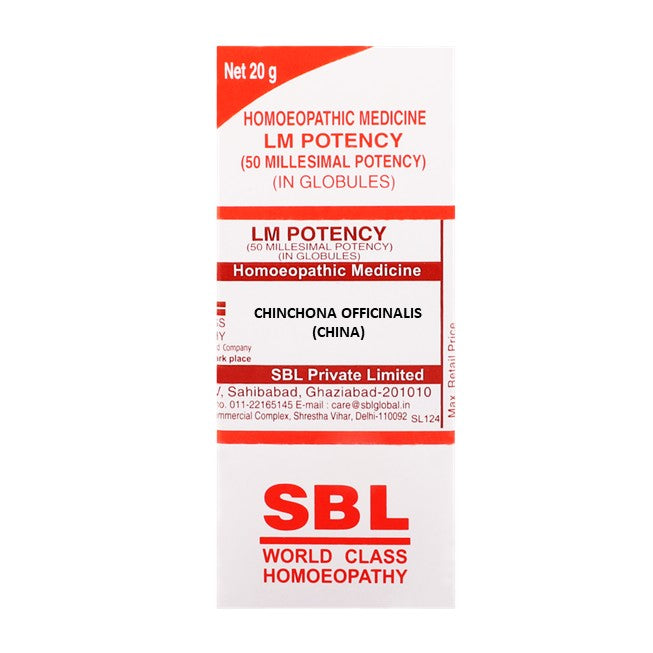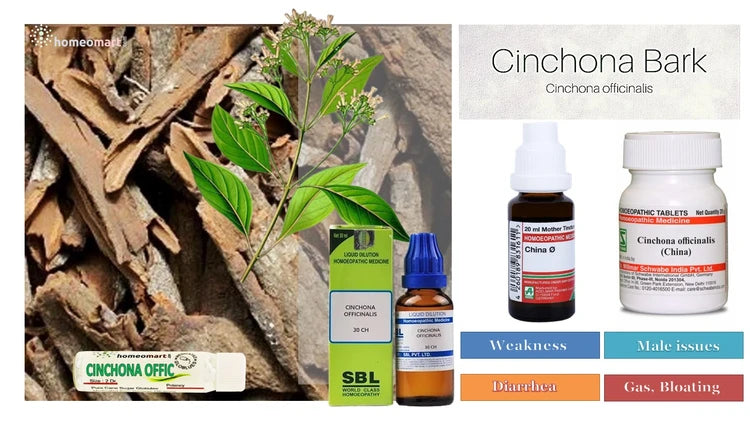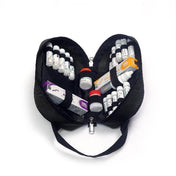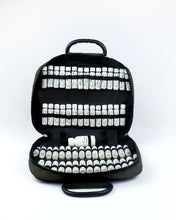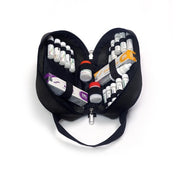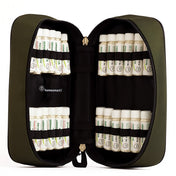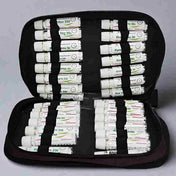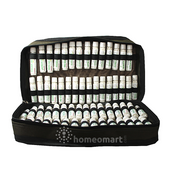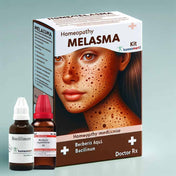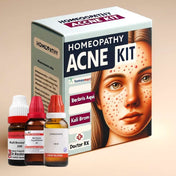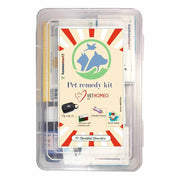Cinchona Officinalis (China) Homeopathy LM Potency Dilution
Cinchona Officinalis (China) Homeopathy LM Potency Dilution - 1/2 Dram (1.6 Gms) / 0/1 is backordered and will ship as soon as it is back in stock.
Couldn't load pickup availability
Description
Description
For Anaemia, Diarrhoea, Haemorrhage, Indigestion, Liver Troubles, high temperature
Clinical Indications of Cinchona officinalis:
China officinalis is a known drug for debility from exhausting discharges, from loss of vital fluids together with a nervous erethism. Such patients are very sensitive to draughts.
China officinalis is indicated for Tympanitic abdomen with excessive flatulence and belching with no relief. Great distension of entire abdomen. Sensation as if abdomen is full of gas which is not relieved by eructations.
Worse from eating fruits, fish and wine.
It is also helpful for both acute and chronic diarrhea. Stools are loose, painless excessively offensive flatus with undigested food particles. Marked periodicity and profound debility with diarrhea.
Cinchona Officinalis is also helpful in chronic liver troubles with pain in the right side of abdomen.
Cinchona Officinalis is useful in haemorrhages from any orifice of the body such as mouth, nose, bowels. Long continued haemorrhage occurs with desire for sour things.
Cinchona Officinalis also helps in anaemia that follows the loss of vital fluid, haemorrhage, prolonged or excessive lactation, diarrhea or sexual excess.
This remedy is also indicated in lowering the high body temperature.
It is also useful in the treatment of chronic gout, chronic suppurative pyelitis.
China patients have suffered with post operative gas pains that are not relief from passing it.
Cinchona Officinalis has marked action on indigestion and diarrhea. There is no desire for eating or drinking although there is appetite. Abdomen is sore and tender worse by slightest touch and relieved by hard pressure and doubling up.
Vomiting of undigested food, of sour mucus bile or blood is well relieved by it.
Patient Profile: Cinchona officinalis LM potency medicine
Head
It is indicated for Vertigo with nausea after losses of fluids, with fainting, ringing in ears, loss of sight, cold surface.
Attacks of headache, with nausea and vomiting, Headache as from suppressed coryza is well relieved by China officinalis.
Headache, increased by touch, movement, and walking, also by a current of air, or by walking against the wind. Headache often attacks only one side.
Eyes and Ears
Pressure and pain in the eyes, as from drowsiness.
Inflammation of the eyes, with heat, redness, burning and pressive pains, and aggravation in the evening.
Sensitiveness of the eyes to the bright sunlight indicates China officinalis.
Tearing in the ears, mostly in the external ear, Intolerance of noise.
Hardness of hearing, humming and roaring in ears is relieved by China officinalis.
Nose
China officinalis is useful in Bleeding of the nose, after blowing it.
Dry coryza, with toothache and lachrymation and sneezing is relieved by China officinalis.
Teeth
Dull and distressing pains in carious teeth. Throbbing toothache better by external warmth is relieved by it.
It is also well indicated in the complaint of Swelling of the gums.
Throat
Dryness of the throat. Shootings in the throat, especially on swallowing, provoked by the least current of air indicates China officinalis.
Abdomen
It is indicated for Shooting and pressive pains in the hepatic region, especially when it is touched.
China officinalis is useful in complaint of Hardness and swelling of the liver and spleen.
Excessively painful colic, cramp-like and constrictive pains in the abdomen, Escape of fetid flatus.
Stool and Anus
It is indicated for Difficult evacuation of soft feces, as if from inactivity of the intestines.
Slimy, watery, yellowish diarrhoea, Diarrhoea after eating fruit, Diarrhoea, particularly after meals, at night, involuntary, Discharge of mucus from the rectum is well relieved by it.
Urinary Organs
China officinalis is indicated for frequent and almost ineffectual urging to urinate, followed by pressure on the bladder.
It is also helpful in complaint of bed wetting, bloody urine.
Male Sexual Organs
Swelling of the testes and of the spermatic cord, Drawing pains in the testes.
Pollutions frequent, with too ready an emission, followed by great weakness is relieved by it.
Female Sexual Organs
Congestion in the uterus, with fullness and painful bearing-down, especially when walking.
Constant discharge of clotted blood from the vagina.
Metrorrhagia, with discharge of black blood, with fainting & convulsion indicates China officinalis.
About LM potency homeopathy medicines
In the sixth edition of ‘Organon’ Dr. Hahnemann had introduced a new system of dilution and potentization and called it “renewed dynamisation” with a diluting ratio of 1:50,000. It was named as 50 millesimal potency or LM potency by Dr. Pierre Schmidt. In some parts of the world, it is also called as Q potency. It soon got professional acceptance. As on date, it is recognized by different homoeopathic pharmacopoeias including American and Indian.
What are they and how are they denoted?
These homoeopathic potencies are prepared in the diluting scale of 1:50,000 and denoted as 0/1, 0/2, 0/3…..etc. They are generally used up to 0/30.
Perceived advantages
- Highest development of power at each potency level.
- Mildest reaction – no medicinal aggravation.
- Frequent repetition is permitted; every hour or oftener in urgent cases.
- Quick cure in chronic cases where it can be given daily or oftener.
- 0/3 is more subtle than 30C or 200C and the 0/30 is sharper than CM as believed by many classical homoeopaths.
LM potency dosage: Generally LM potencies are administered as follows:
- Take a 4oz (120ml) to 6oz (180ml) clean glass bottle. Fill it 3/4th with water. Take 1or 2 globules of the desired potency (often starting at LM 0/1) and place it into the bottle.
- Succuss the bottle just prior to ingestion 1 to 12 times depending on the sensitivity of the patient. This slightly raises the potency and activates the remedy.
- Take 1, or more teaspoons of the medicinal solution and place it into 8 to 10 tablespoons of water in a dilution glass and stir it. Most cases are started with 1 teaspoon and the amount is increased only if necessary. In children the amount should be 1/2 teaspoon. Infants may only need 1/4 of a teaspoon.
The dosage of the medicinal solution can be carefully adjusted to suit the sensitivity of the individual’s constitution
Note: We dispense SBL LM potency medicines in 1/2, 1 & 2 dram plastic containers, image for illustrative purpose only.

